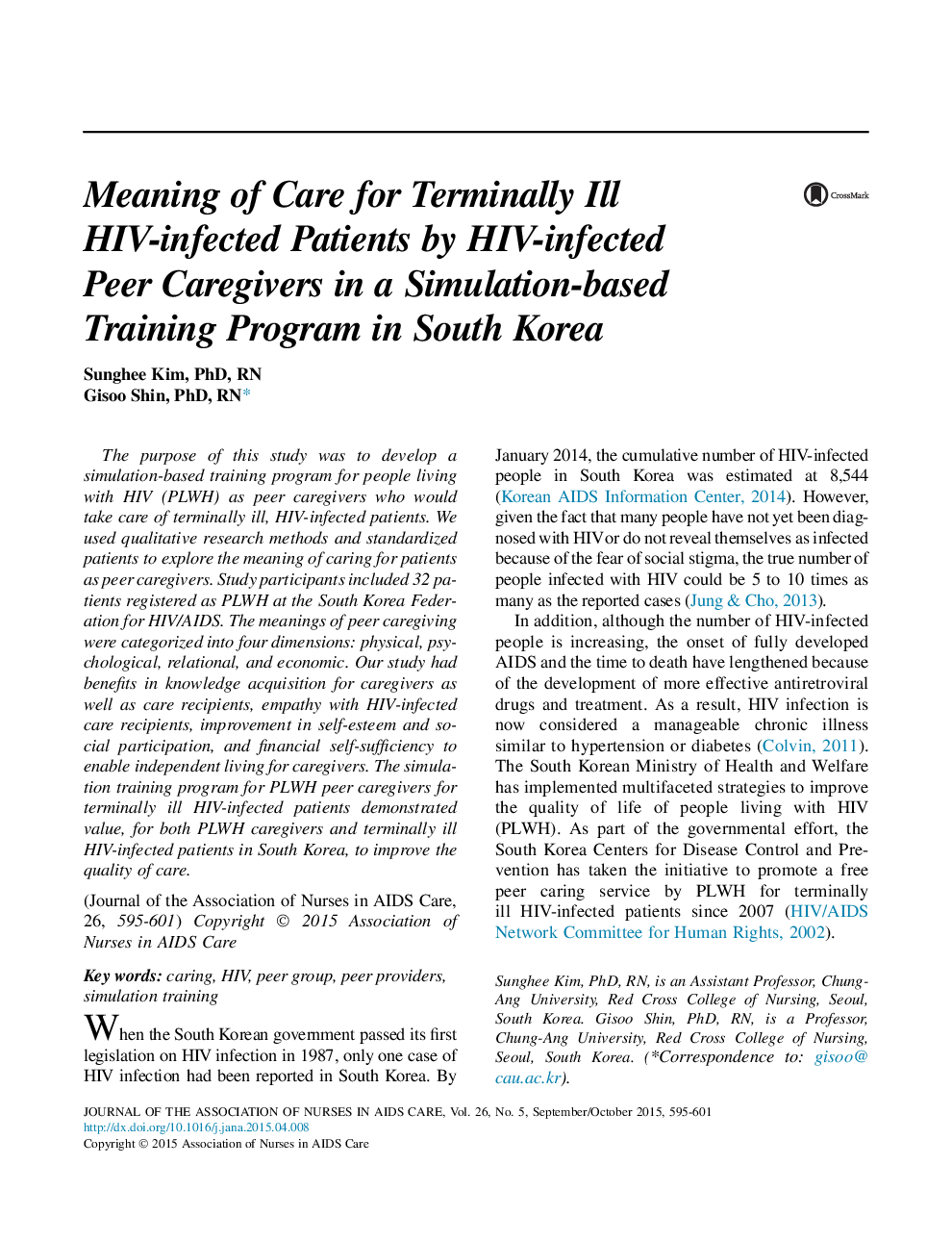| Article ID | Journal | Published Year | Pages | File Type |
|---|---|---|---|---|
| 2658939 | Journal of the Association of Nurses in AIDS Care | 2015 | 7 Pages |
The purpose of this study was to develop a simulation-based training program for people living with HIV (PLWH) as peer caregivers who would take care of terminally ill, HIV-infected patients. We used qualitative research methods and standardized patients to explore the meaning of caring for patients as peer caregivers. Study participants included 32 patients registered as PLWH at the South Korea Federation for HIV/AIDS. The meanings of peer caregiving were categorized into four dimensions: physical, psychological, relational, and economic. Our study had benefits in knowledge acquisition for caregivers as well as care recipients, empathy with HIV-infected care recipients, improvement in self-esteem and social participation, and financial self-sufficiency to enable independent living for caregivers. The simulation training program for PLWH peer caregivers for terminally ill HIV-infected patients demonstrated value, for both PLWH caregivers and terminally ill HIV-infected patients in South Korea, to improve the quality of care.
